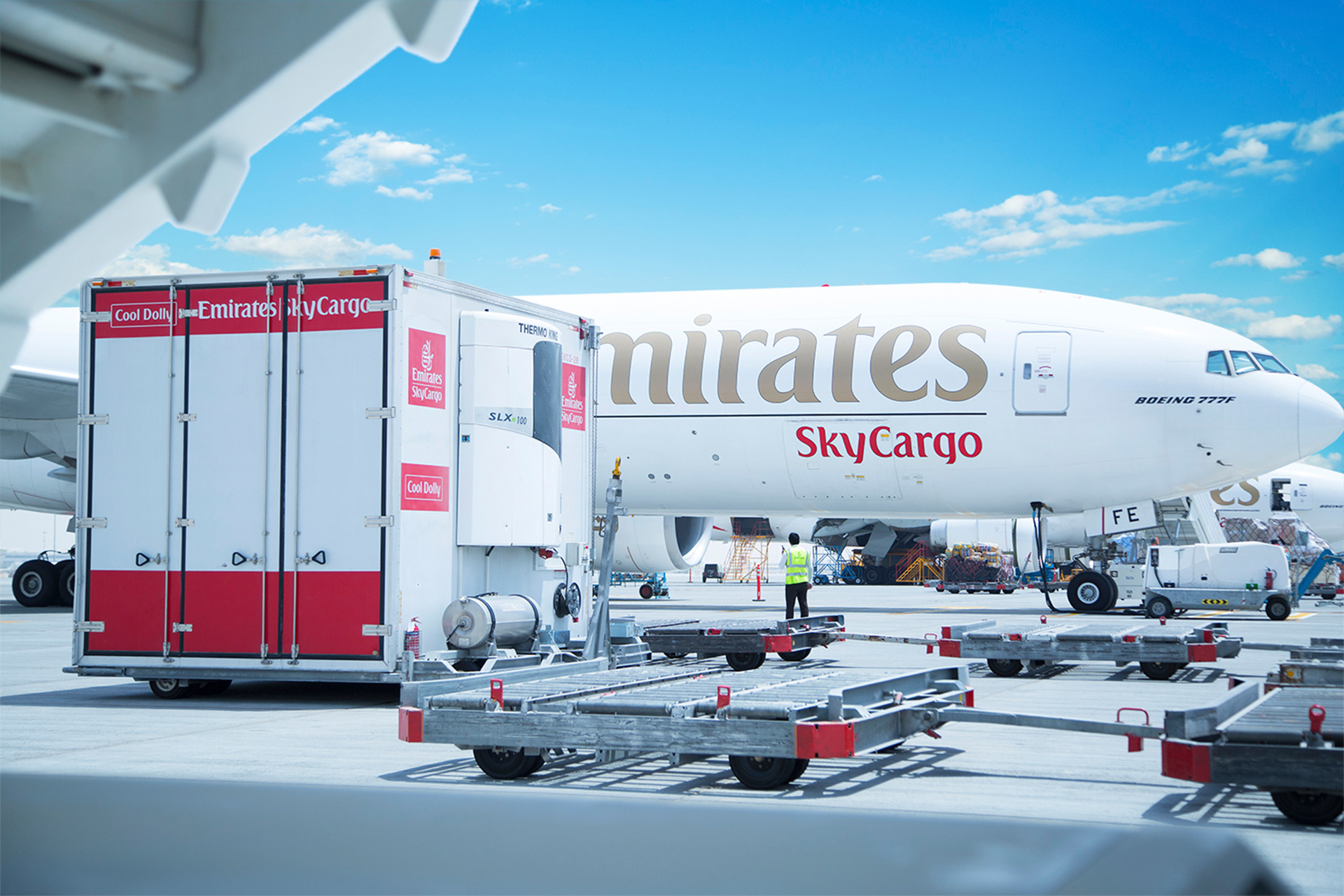
Air cargo: getting data to really take off
More stringent requirements in terms of climate protection, the increasing importance of e-commerce and the shortage of skilled professionals are some of the major challenges facing the global air cargo industry. Artificial intelligence, further automation and the Internet of Things represent solutions. However, the industry is also researching alternative drives.
Air cargo Europe, held during transport logistic in Munich, is the world’s largest air cargo trade fair. More than 220 companies from over 40 countries will be exhibiting over approx. 15,000 m2 of trade fair space.

“We are thrilled that we have managed to attract even more important players in the air cargo industry, such as Neutral Air Partner, WCA, Finnair Cargo, Antonov Airlines, Thai Airways and All Nippon Airways, to the trade fair,” says Stefan Rummel, Managing Director of Messe München.
AI is inevitably having a big impact
“The use of AI is the logical consequence of progressive digitalization in the air cargo industry,” explains Prof. Dr. Joachim Ehrenthal from the University of Applied Sciences and Arts Northwestern Switzerland and contributor for the open discussion entitled “Artificial Intelligence: Next Level Air Cargo?” Through the “exchange of views and information on specific applications,” Ehrenthal intends to bring the topic of artificial intelligence “down to earth.” AI is already deployed throughout the air cargo chain, for example for projections, optical process monitoring, vehicle maintenance, the packing of containers and fraud detection.
Computational intelligence processes are often compatible with air cargo requirements. These are understood to be processes inspired by nature, for example such as artificial neural networks and swarm intelligence. The focus is always on data and the automated use of the data. “We need to get the data to really take off. By this I mean that existing data graveyards need to be activated and converted into operational decision-making systems,” summarizes Ehrenthal.

Dr. Harald Sieke, Head of the Aviation Logistics department of the Fraunhofer Institute for Material Flow and Logistics (IML), confirms this viewpoint: “AI will be deployed throughout the entire air cargo transport chain. The most promising opportunities relate to bookings, reservations and cargo organization for plane loading.” AI will also cause market shifts as some players will reposition themselves and others will leave the market altogether.
E-commerce—even international shipments are getting smaller and smaller
Another trend is that e-commerce, which is experiencing strong growth, has for years been leading to smaller and smaller shipments, including even individual items, being sent. “This focus on smaller units will increase primarily in international e-commerce, which is a very important segment for the air cargo industry,” predicts Sieke.

Customers also want to be able to track shipments from end to end as seamlessly as possible. Cargo iQ, an initiative of the International Air Transport Association (IATA), is therefore designed to contribute to process control, quality control and service improvement. Emirates SkyCargo has been certified in this since March 2018. “We pro-actively interact with our customers regarding the shipping status,” says Nabil Sultan, Emirates Divisional Senior Vice President Cargo. “We monitor shipments around the clock in real time using established milestones and implement corrective measures in the event of deviations or delays.”
Automatic through to self-navigating
The shortage of skilled professionals is also expediting the trend for automated systems both in terms of handling and transportation of air cargo. At the same time, “up to 5% of air cargo will no longer be needed on account of 3-D and 4-D printing,” estimates Sieke. However, if you compare this figure with expected annual growth in air cargo, then “the effects of these types of technology should be seen as negligible.” On the other hand, the Internet of Things will have a much greater impact. “In the future, shipments will find their own way through the air cargo network,” says the scientist. In five to ten years, current intensive research on this will be tangibly felt in practice.
Climate protection measures
The air cargo industry is already making a multi-faceted contribution to climate protection, from the electrification of ground traffic right through to solar installations for buildings. Of course, the sustainability of aircraft as a means of transport needs to be improved as a whole. The European Clean Sky Joint Technology Initiative (JTI), for example, is striving to achieve this goal. With a budget of 1.6 billion euros, it is the largest EU project focusing on the sustainability and competitiveness of aviation in Europe. One area with major promising potential is power-to-liquid technology, which involves a process for generating carbon-neutral synthetic liquid fuels. The same can be said of hybrid-electric flying—Norway intends for 100% of domestic flights to be made using zero-emission planes by 2040. All-electric cargo planes, however, are still a long way off due to technical constraints.
